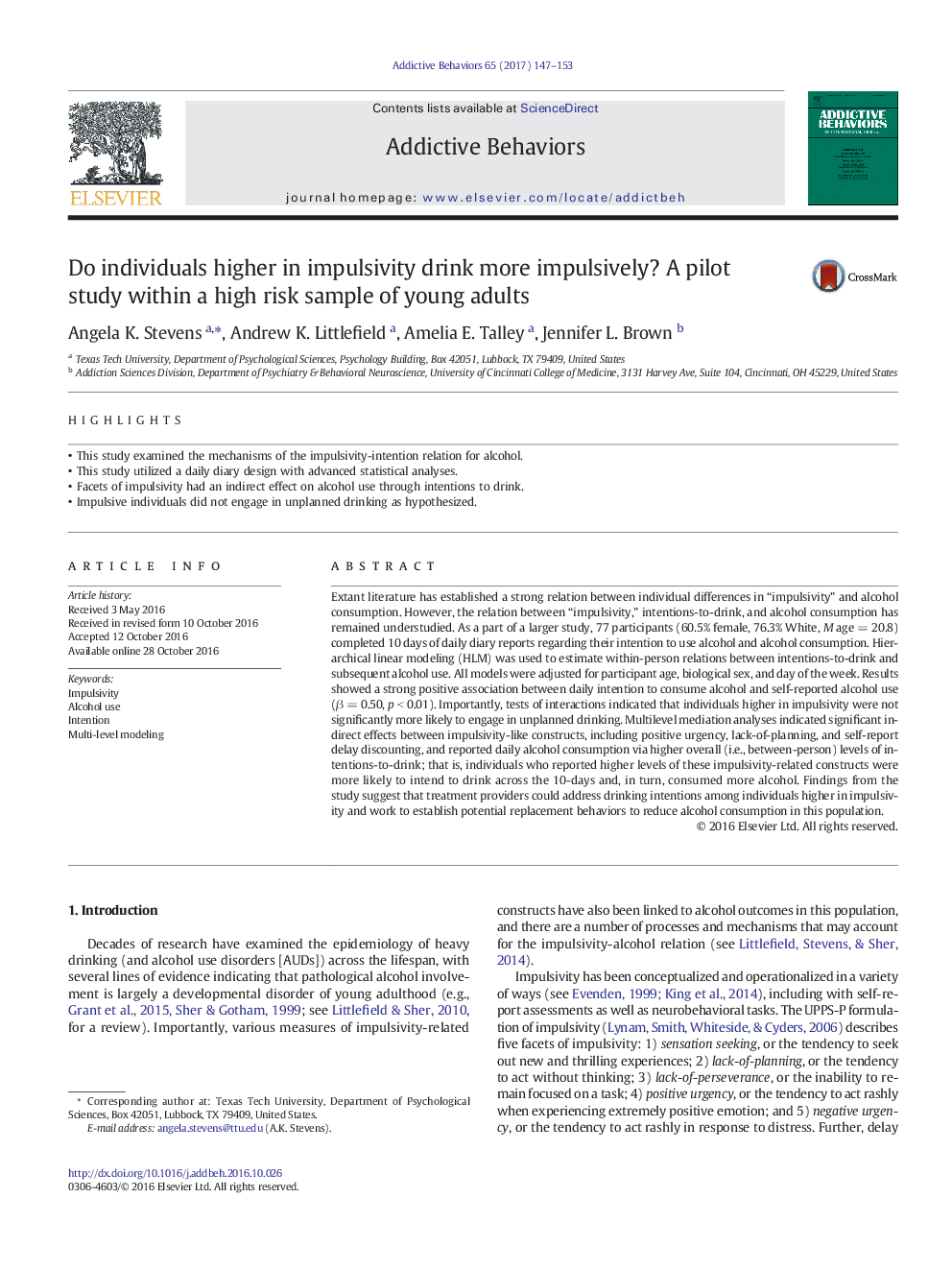ترجمه فارسی عنوان مقاله
آیا افراد در امتداد نوشیدنی بیشتر تحریک می کنند؟ یک مطالعه آزمایشی در نمونه ی پر خطر جوانان
عنوان انگلیسی
Do individuals higher in impulsivity drink more impulsively? A pilot study within a high risk sample of young adults
| کد مقاله | سال انتشار | تعداد صفحات مقاله انگلیسی |
|---|---|---|
| 122271 | 2017 | 7 صفحه PDF |
منبع

Publisher : Elsevier - Science Direct (الزویر - ساینس دایرکت)
Journal : Addictive Behaviors, Volume 65, February 2017, Pages 147-153
ترجمه کلمات کلیدی
تکانشی، مصرف الکل، قصد مدل سازی چند سطحی،
کلمات کلیدی انگلیسی
Impulsivity; Alcohol use; Intention; Multi-level modeling;

